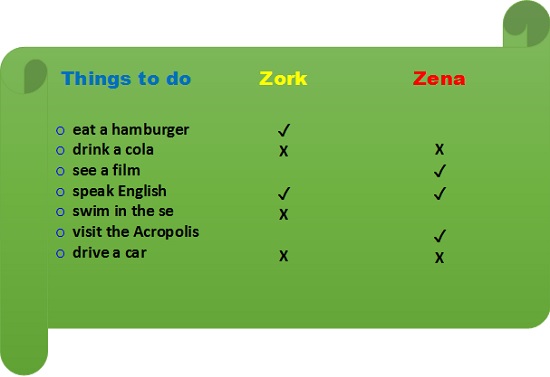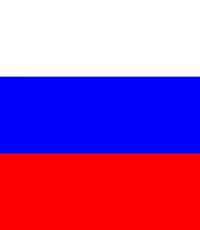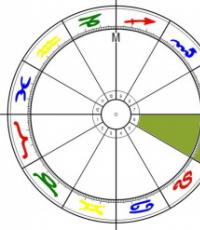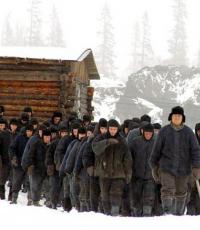Упражнения на употребление present perfect. Hide Me in a SuitcaseСпрячьте меня в чемодан. Where Is Your Tail?Где твой хвост
Упражнение 1.
Дополните предложения, используя глаголы в Present Perfect .
1. Jill is in London. She has been in London since Monday.
2. I know George. I have known him for a longtime.
3. They are married. They *** married since 1983.
4. Brian is ill. He *** ill for a week.
5. We live in this house. We *** here for ten years.
6. I know Tom very well. I *** him for a long time.
7. We are waiting for you. We *** waiting since 8 o’clock.
8 Alice works in a bank. She *** a bank for five years.
9. I’m learning English. I *** learning English for six months.
10. She has a headache. She *** a headache since she got up.
Ответы:
3. They are married. They have been married since 1983.
4. Brian is ill. He has been ill for a week.
5. We live in this house. We have lived here for ten years.
6. I know Tom very well. I have known him for a long time.
7. We are waiting for you. We have been waiting since 8 o’clock.
8 Alice works in a bank. She has worked a bank for five years.
9. I’m learning English. I have been learning English for six months.
10. She has a headache. She has had a headache since she got up.
Упражнение 2.
Пользуясь опорными словами, a также словами for и since составьте предложения в Present Perfect .
- Kate/be/in bed/a long time.
- She / not eat / anything / this morning.
- She / not see / her friends / a week.
- She / stay / at home / Tuesday.
- She / have / a red nose / three days.
- She / not play / basketball / last weekend.
- She / not do / any school work / Monday.
Ответы:
- Kate has been in bed for a long time.
- She hasn’t eaten anything since this morning.
- She hasn’t seen her friends for a week.
- She has stayed at home since Tuesday.
- She has had a red nose for three years.
- She has not played basketball since last week.
- She has not done any school work since Monday.
Упражнение 3.
Переведите на английский язык, употребляя The Present Perfect Tense .
A.
1. Ты показал друзьям свою работу? - Нет, она еще не готова.
2. Я посмотрел этот фильм. А ты? - Да, это интересный фильм.
3. Моя сестра закончила институт иностранных языков и преподает в школе.
4. Я прочитал эту книгу на английском языке и советую вам сделать это.
5. Анна получила новую квартиру. Ты видел ее? - Да, я был там на той неделе.
6. Посмотри, он написал новые слова на доске.
7. Где журналы? - Я взял их домой.
8. Ты видел этот фильм по телевизору? - Нет, у меня мало времени. Я сейчас много работаю.
9. Он повторил правила 5-го урока? Он знает их?
10. Ты был в этом парке? - Да.
Ответы:
1. Have you shown your friends the work? - No, it isn’t ready yet.
2. I’ve seen,the film. Have you? - Yes, it’s an interesting film.
3. My sister has graduated from the Institute of Foreign Languages and is working at school as a teacher.
4. I’ve read the book in English and advise you to do it (so).
5. Ann has got a new flat. Have you seen it? - Yes, I was there last week.
6. Look! He has written the new words on the blackboard.
7. Where are the magazines? - I’ve taken them home.
8. Have you seen the film on TV? - No, I haven’t got enough time. (I’ve got too little time.) I’m working much now.
9. Has he revised the rules of Lesson 5? Does he know them?
10. Have’ you been to the park? - Yes, I have.
B.
1. Она только что вернулась.
2. Я уже перевела эти предложения на французский.
3. Вы были когда-нибудь в Болгарии? - Да, это очень красивая страна.
4. Он всегда хотел иметь хорошую библиотеку дома.
5. Я никогда раньше не видела этого человека.
6. Вы уже поговорили с друзьями об этом?
7. Мы еще не сделали упражнение на странице 13.
8. Ты можешь подождать? Мы еще не поужинали.
9. Что делает ваш сын? - Он только что пришел и играет с отцом в шахматы.
10. Где Николай? - Он уже лег спать.
11. Возьмите эти журналы. Я уже прочитала их.
12. Ты уже сделал уроки? - Нет еще.
13. За последнее время я выучил много новых французских слов.
14. Мы еще не видели центра вашего города. Мы только что приехали.
15. Он написал две статьи за последнее время.
16. Где ваша дочь? - Я уже отвела ее в детский сад.
17. Я еще не был в новом театре.
18. Она никогда раньше не переводила такие трудные статьи.
Ответы:
1. She has just returned.
2. I’ve already translated these sentences into French.
3. Have you ever been to Bulgaria? - Yes, it’s a very beautiful country.
4. He has always wanted to have a good library at home. 5. I’ve never seen this man before.
6. Have you spoken to your friends about this yet?
7. We haven’t done the exercise on Page 13 yet.
8. Can you wait? We haven’t yet had supper.
9. What is your son doing? - He has just come and is playing chess with his father.
10. Where is Nick? - He has already gone to bed.
11. Take these magazines. I’ve already read them.
12. Have you done your lessons yet? - Not yet.
13. I’ve learnt many new French words lately.
14. We haven’t yet seen the centre of your town. We’ve just come.
15. He’s written two articles lately.
16. Where’s your daughter? - I’ve already taken her to a nursery school.
17. I haven’t yet been to die new theatre.
18. She has never translated such difficult articles before.
1. В этом году мы купили новый телевизор.
2. Ты видел Петра сегодня? - Да.
3. На этой неделе я звонил ему несколько раз.
4. Сегодня я получил письмо от брата.
5. В этом году моя сестра закончила школу.
6. Мы не были у них сегодня.
7. Ты был в театре на этой неделе? - Нет, не был.
8. Сегодня он уехал в Киев.
9. На этой неделе мы закончили работу.
10. В этом году он прочитал несколько книг Джека Лондона.
Ответы:
1. We’ve bought a new TV set this year.
2. Have you seen Peter today? - Yes, I have.
3. I’ve rung him up several times this week.
4. Today I’ve received a letter from my brother.
5. My sister has finished school this year.
6. We haven’t been to ther place today.
Сегодня мы продолжаем публиковать подробное и простое описание времен английского языка. Мы уже рассказали вам о том, что такое и . Сегодня мы познакомимся с еще одним временем английского языка, которое называется Present Perfect , или настоящее завершенное (совершенное) время.
Итак, начнем с описания небольшой ситуации. Представьте, что вы подошли к двери собственного дома и вдруг обнаружили, что потеряли ключи. Результат того, что вы потеряли ключи, весьма неприятен: вы стоите перед запертой дверью, не можете попасть внутрь, нервничаете, начинаете думать об альтернативных вариантах … Предположим, вы звоните своему другу и говорите – “Я потерял ключи”. Если бы вы сказали эту фразу по-английски, то обязательно бы использовали Present Perfect.
Теперь внимание: Present Perfect выражает завершенное действие (ключи вы уже потеряли), от которого в настоящем времени имеется какой-то результат (сейчас вы не можете попасть домой, нервничаете и т.д.). Итак, еще раз: действие завершено, закончено, но оно оставило след в настоящем времени.
Еще примеры:
– Почему отсутствует Иванов?
– Он сломал ногу.
(сломал – завершенное действие, в результате которого Иванова сейчас нет на занятии)
– Какой ужас! На полу осколки! Кто-то разбил чашку!
(разбил – завершенное действие, оставившее результат в настоящем времени – осколки).
Чтобы еще лучше понять суть Present Perfect, давайте рассмотрим его в сравнении с уже изученными временами. Итак:
– Present Simple (настоящее простое) обозначает повторяющее, регулярное действие: Я (каждый день, постоянно, регулярно) езжу на работу на такси. Я занимаюсь волейболом (три раза в неделю).
– Present Continuous (настоящее продолженное) обозначает действие, которое имеет место здесь и сейчас: Я (сейчас) ем. Он (сейчас) работает в саду.
– Present Perfect (Настоящее завершенное) обозначает завершенное действие (произошедшее событие), которое имеет результат в настоящем: Я опоздал на работу (и теперь придется объясняться с начальником).
Теперь пришла пора разобраться с образованием времени Present Perfect.
Время Present Perfect является сложным, т.е. состоящим из нескольких компонентов. Первыми являются вспомогательные глаголы have и has, вторым – причастие прошедшего времени. Причастие прошедшего времени образуется при помощи окончания -ed или просто -d, которое добавляется к правильным глаголам:
work – worked
translate – translated
Причастие неправильных глаголов надо заучивать наизусть. О неправильных глаголах можно прочитать в статье: ……….
Таким образом, Present Perfect принимает следующий вид:
have worked
has worked
– если в предложении в качестве подлежащего использованы местоимения he, she, it, то следует использовать has:
he has translated – он перевел
she has written – она написал
it has broken – это сломалось
– во всех остальных случаях используется have:
we have translated – мы перевели
they have written – они написали
you have done – вы сделали
Прочтите дополнительные примеры с Present Perfect:
I have written a letter. – Я написал письмо (вот оно, готовое к отправке).
They have gone. – Они ушли (и теперь я остался один).
He has broken the cup. – Он разбил чашку (и теперь должен купить новою).
We have made exercises. – Мы сделали упражнения (и они готовы к проверке).
Очень часто местоимения и вспомогательные глаголы сливаются вместе:
I have = I’ve
you have = you’ve
he has = he’s
she has = she’s
it has = it’s
we have = we’ve
they have = they’ve
I have written a letter. = I’ve written a letter.
They have gone. = They’ve gone.
He has broken the cup. = He’s broken the cup.
We have made exercises. = We’ve made exercises.
Теперь научимся строить отрицательные предложения в Present Perfect. Это достаточно легко. Чтобы предложение в Present Perfect сделать отрицательным, нужно после have или has поставить отрицательную частицу not.
I have not written a letter. – Я не написал письмо.
They have not gone. – Они не ушли.
He has not broken the cup. – Он не разбил чашку.
We have not made exercises. – Мы не сделали упражнения.
Вспомогательные глаголы могут сливаться с частицей not:
have not = haven’t
has not = hasn’t
I haven’t written a letter.
He hasn’t broken the cup.
Перейдем к вопросительным предожениям. В вопросах подлежащее со сказуемым меняются местами, т.е. вспомогательные глаголы перемещаются вперед:
He has missed the train. – Он пропустил поезд.
Has he missed the train? – Пропустил ли он поезд?
They have learnt news words. – Они выучили новые слова.
Have they learnt new words? – Выучили ли они новые слова?
И в заключение осталось рассмотреть краткие ответы. При ответах на вопросы в русском языке можно просто сказать “Да” или “Нет”. Например:
Ты выучил слова? – Да.
Он опоздал на поезд? – Нет.
В английском языке следует после “Да” (Yes) и “Нет” (No) употребить вспомогательный глагол have или has.
Has he missed the train?
Yes, he has.
No, he hasn’t.
Have they learnt new words?
Yes, they have.
No, they haven’t.
Если вы хотите расширить и углубить знания по данной теме, то обязательно посетите .
2016-04-26
Здравствуйте, мои любимые читатели.
Сегодня мы будем практиковать очень интересную тему английского языка, с которой у многих возникает куча проблем - «Настоящее совершенное время». А закреплять мы ее будем, выполняя упражнения на Present Perfect . Надеюсь, что после этого вам станет намного легче справляться с этим временем.
Упражнение 1.
- I (to be) to their concert twice. Their music is amazing.
- I (not/to see) Jane since the day of her wedding. They (to come back) from their honey moon yet?
- -Where is your ID Card? -I (to lose) it. They are going to make me another one.
- Oh, look! It’s Sarah. I (not/to see) her for a long time.
- Jane is on holiday. She (to go) to Ireland.
- -Are you going to the medical center? -I (already/to be) there today.
- I am waiting for a very important letter. It (not/to arrive) yet?
- My father (to start) a new job recently. He is very busy now. I (not/talk) to him for a long time already.
Упражнение 2.
- You (to hear) from Melisa recently? - No, she (to go) to China for a seminar and (not/come back) yet.
- It was a great weekend. I (to meet) lots of people for the last few days.
- It is the first time I (to swim) in the ocean. I (never/do) this before.
- You (ever\try) Indian or Chinese food?
- I was very busy with the project recently. So I (not/seen) any of my friends for a long time.
- You (ever/to speak) to a famous person in your life?
- What is the most beautiful place you (ever/to see)?
- I (to give up) smoking last year. I (not\to smoke) since then.
Упражнение 3.
Hello, Josh. I hope you are enjoying your holidays in America. Everything is fine at home. Molly 1. (to receive) the exam results from school recently. She 2. (to get) the highest possible point among all the children. Aunt Franny 3. (to sell) her old car and 4. (already/to buy) a new one. Mother 5. (already/to plan) our next weekend holidays. We are going for a barbeque party. Father 6. (to be) to Paris twice since the time you left. He has so much to tell you. And I 7. (to get) a confirmation letter about my internship in the law firm. So everything is good. Come home. We miss you.
Упражнение 4.
In a result of a lottery win, the life of The Brants has changed completely.
- They (to move) to a new big house. Besides, they (to hire) a cleaner and a butler.
- Brant (to gain) weight and (to grow) a beard.
- Lily Brant (to take up) tennis. She (already/win) the school championship.
- John Brant (to join) the football team
- Brant (to lose) weight. She (to buy) new clothes and (to join) the reading club.
Упражнение 5.
- Ты раньше водил машину?
- - Ты когда-либо играла в теннис? - Нет, никогда.
- Я читаю газеты каждое утро. Но я еще не читал газету сегодня.
- Ты был в Лондоне?
- - Как тебе новая учительница? - Я не знаю. Я болела, поэтому еще не встречала ее.
- Лили потеряла паспорт. Это второй раз, когда это произошло.
- Билли снова звонит своей девушке. Этой третий раз, когда он позвонил ей за этот вечер.
Ну вот, мои дорогие, надеюсь, что вы вдоволь напрактиковались и грамматика 6 и 7 класса с вами прижилась). Ждите следующие практические уроки, а пока я с вами прощаюсь.
До новых встреч.
Упражнение 1.
- Have been.
- Haven’t seen, have they come.
- Have lost.
- Have not seen.
- Has gone.
- Have already been.
- Has not it arrived.
- Has started, have not talked.
Упражнение 2.
- Have you heard, has gone, has not come back
- Have met.
- Have swum, have never done.
- Have you ever tried.
- Have not seen.
- Have you ever spoken.
- Have ever seen.
- Gave up, have not smoked.
Упражнение 3.
- Has received.
- Has got.
- Has sold.
- Has already bought.
- Has already planned
- Has been.
- Have got.
Упражнение 4.
- Have moved, have hired.
- Has gained, has grown.
- Has taken up, has already won.
- Has joined.
- Has lost, has bought, has joined.
Упражнение 5.
- Have you ever driven a car?
- -Have you ever played tennis? - No, I have not.
- I read the newspapers every morning. But I haven"t read the paper today.
- Have you been to London?
- - How"s you new teacher? I don"t know. I was sick, so I haven"t met her yet.
- Lily has lost the passport. This is the second time it has happened.
- Billy is calling to his girlfriend. This is the third time he has phoned her this evening.
Сегодня нам предстоит выполнить 12 упражнений на , поэтому освежите в памяти схему его образования.
Упражнения на Present Perfect помогут вам
- закрепить английского глагола
- вспомнить
- отработать употребление for и since, a также already, never и yet.
- отработать построение утвердительных, отрицательных и вопросительных предложений в Present Perfect Tense
Наличие ответов к упражнениям поможет вам проконтролировать собственные результаты или результаты ваших учеников.
Форма глагола в Present Perfect Tense. Exercises.
Упражнение 1. Заполните таблицу, используя следующие формы глагола. Complete the table with the base forms and the past participles. Use the words in the box.
Lose, taken, swim, bought, do, written, run, eaten, take, won, write, done, buy, lost, win, run, eat, swum
|
base form |
past simple |
past participle |
Утвердительные предложения в Present Perfect Tense. Упражнения.
Упражнение 2. Поставьте глаголы в скобках в Present Perfect.
- He _____ (finish) training.
- She _____ (score) twenty points in the match.
- We _____ (watch) all the Champions League matches this season.
- That"s amazing! She _____ (run) fifteen kilometers this morning!
- She _____ (buy) some really nice rollerblades!
- Oh, no! I _____ (lose) my money!
- My mum _____ (write) shopping list. It"s on the kitchen table.
- Dad, you _____ (eat) my biscuit!
- I’m tired. I _____ (watch) three X-Files videos.
- Hurry up! They _____ (start) the film!
- Mary _____ (study) hard this year, so she"ll pass her exams.
- Oh no! She _____ (drop) the plate!
- The garden is very green. It _____ (rain) a lot this month.
- These are my favourite trousers. I _____ (have) them for five years.
- Tom"s my best friend. I _____ (know) him for three years.
- They _____ (live) in Miami for two years.
- Jo has earache. He _____ (have) it since 7 o"clock.
- Brad _____ (live) in Chicago since 1998.
Отрицательные предложения в Present Perfect Simple. Упражнения.
Упражнение 3. Поставьте глаголы в скобках в Present Perfect negative.
- I _____ (not clean) my football boots.
- They _____ (not start) their meal.
- I _____ (not do) my homework.
- He _____ (not win) all his matches this year.
- My brother and I _____ (not see) any films this week.
- It"s my birthday party today. I _____ (not invite) many people.
- He _____ (not wash) his hands. They"re very dirty.
- Mum"s really angry. We _____ (not tidy) our room!
- I can"t play with my friends this evening. I _____ (not finish) my homework.
- I _____ (not visit) New York for three years.
- Where"s Alison? We _____ (not see) her since yesterday.
- Dad _____ (not take) a holiday since last August.
- John _____ (not play) the violin since he was school.
For или since?
Упражнение 4. В письме есть 4 ошибки на использование for и since. Найдите и исправьте их. These are some sentences from Nigel’s letter home from Africa. He has made four mistakes in using ‘for’ and ‘since’. Correct his mistakes.
Dear Mum and Dad,
I"ve lived in Africa since two weeks and I love it! Africa is beautiful! I haven’t travelled to any faraway place for last summer. I’m so happy now!
I’ve already seen Mr. Rambler. He is working for WWF here and taking photos of wild animals. I haven’t seen any lions yet. I think I’ll see them later.
Thank you for the trip. I’ve dreamed of Kenya for my childhood. I haven’t seen you since ages! I miss you so much!
Упражнение 5. Дополните предложения словами for или since. Complete the sentences. Use for or since.
- I"ve lived in Washington _____ 1997.
- Ben has studied English _____ three years.
- They haven"t visited their grandparents _____ months.
- Julie"s ill. She"s been in bed _____ Tuesday.
- My dad has had his car_____ sixteen.
- It"s been ten years_____ we moved to Oxford.
Упражнение 6. Пользуясь опорными словами, a также словами for и since составьте предложения в Present Perfect Simple.
- Kate/be/in bed/a long time.
- She / not eat / anything / this morning.
- She / not see / her friends / a week.
- She / stay / at home / Tuesday.
- She / have / a red nose / three days.
- She / not play / basketball / last weekend.
- She / not do / any school work / Monday.
Вопросительные предложения в Present Perfect Tense. Упражнения.
Упражнение 7. Zork и Zena – инопланетяне, впервые прилетевшие на Землю. Они составили список дел. Напишите вопросы и ответы о том, что они уже сделали, а чего пока нет.
Zork (eat) a hamburger?
Has Zork eaten a hamburger?
Zork and Zena (drink) a cola?
Have Zork and Zena drunk a cola?
No, they haven"t.

- Zena (see) a film?
- Zork and Zena (speak) English?
- Zork (swim) in the sea?
- Zena (visit) the Acropolis?
- Zork and Zena (drive) a car?
Упражнение 8. Напишите вопросы в Present Perfect, используя глаголы в скобках. Дайте правдивые ответы.
(eat Italian food)
— Have you ever eaten Italian food?
— Lots of times.
— ______________________
- ______________________
- ______________________
- ______________________
3 (have a dream)
- ______________________
- ______________________
- ______________________
- ______________________
5 (go to a concert)
- ______________________
- ______________________
Упражнение 9. Дополните диалог вопросами и ответами в Present Perfect.
Reporter: (you do) Have you done a lot of training this year?
Trish: Yes, I have. I have trained six times a week all year.
Reporter: Who ______________ (1 you train) with?
Trish: With my coach, and the team.
Reporter: Where ______________ (2 you play) this year?
Trish: Mostly in Britain. But we"ve also travelled to Holland.
Reporter: ______________ (3 you win) many matches?
Trish: Yes, we (4) ______________ .
Reporter: And how many matches ______________ (5 you lose)?
Trish: Only three.
Reporter: That"s great. ______________ (6 you have) any injuries?
Trish: No, I ______________ (7) .
Reporter: Thanks, Trish, and good luck.
Упражнение 10. Напишите вопросы с How long. Дополните ответы, используя for или since. Write questions with How long. Complete the answers with for or since.
I live in London.
How long have you lived in London?
For three years.
1 He"s a teacher.
____________________
September.
2 My parents work in a shop.
____________________
1992.
3 My sister knows Robbie Williams.
____________________
Six months.
4 We"ve got a new car.
____________________
Two weeks.
Комплексные упражнения на использование Present Perfect Simple.
Упражнение 11. Заполните письмо Джейн глаголами в Present Perfect. Complete Jane"s letter to her American friend. Use the Present Perfect Tense.
I _____ (1 not have) a letter from you for a long time. _____ (2 you lose) my address? I bought the new Steps CD at the weekend. I _____ (3 already listen) to it. _____ (4 you hear) it yet? It’s brilliant. There’s a new video too, but I _____ (5 not see) it yet.
School is going OK. I _____ (6 just finish) some exams, but the holidays _____ (7 not start) yet. We’re going to Ireland. I _____ (8 never be) there.
Write soon with your news.
Упражнение 12. Ник готовится к путешествию. Он собирается навестить бабушку.
Ознакомьтесь со списком дел, которые ник планирует сделать до отъезда. Напишите, что он уже сделал, а что нет. Используйте alreadyи yet. Nick is getting ready to travel. He is going to visit his Granny. Read the list of things he must do before travelling. Write what he has done and what he hasn’t done.
THINGS TO DO
- to pack suitcases (+)
- to water flowers (+)
- to take my library book back
- to say ‘good-bye’ to Nigel (+)
- to clean my shoes
- to call Granny (+)
- to buy some food and drinks (+)
- to clean the parrot’s cage
- to change the water for the fish
- to buy a present for Granny (+)
Упражнение 1
|
base form |
past simple |
past participle |
|
Buy do eat lose run swim take win write |
bought did ate lost ran swam took won wrote |
bought done eaten lost run swum taken won written |
Упражнение 2
1 has finished, 2 has scored, 3 have watched, 4 has run, 5 has bought, 6 have lost, 7 has written, 8 have eaten, 9 have watched, 10 have started, 11 has studied, 12 has dropped, 13 has rained, 14 have had, 15 have known, 16 have lived, 17 has had, 18 has lived.
Упражнение 3
1 have not cleaned, 2 haven’t started, 3 have not done, 4 hasn’t won, 5 haven’t seen, 6 haven’t invited, 7 has not washed, 8 haven’t tidied, 9 haven’t finished, 10 have not visited, 11 haven’t seen, 12 hasn’t taken, 13 has not played.
Упражнение 4.
- for two weeks
- since last summer
- since my childhood
- for ages
Упражнение 5
1 since, 2 for, 3 for, 4 since, 5 since, 6 since
Упражнение 6.
- Kate has been in bed for a long time.
- She hasn’t eaten anything since this morning.
- She hasn’t seen her friends for a week.
- She has stayed at home since Tuesday.
- She has had a red nose for three days.
- She has not played basketball since last week.
- She has not done any school work since Monday.
Упражнение 7.
- Has Zena seen a film? Yes, she has.
- Have Zork and Zena spoken English? Yes, they have.
- Has Zork swum in the sea? No, he hasn’t.
- Has Zena visited the Acropolis? Yes, she has.
- Have Zork and Zena driven a car? No, they haven’t.
Упражнение 8.
Have you ever…
- skied?
- won money?
- had a dream?
- broken a leg?
- gone to a concert?
Ответы Ваши собственные.
Упражнение 9.
1 have you trained, 2 have you played, 3 have you won, 4 have, 5 have you lost, 6 have you had, 7 haven’t.
Упражнение 10.
- How long has he been a teacher? He has been a teacher since September.
- How long have they worked in a shop? They have worked in a shop since 1992.
- How long has she known Robbie Williams? She has known him for six month.
- How long have you got a new car. We have got a new car for two weeks.
Упражнение 11.
1 haven’t had, 2 have you lost, 3 have already listened, 4 have you heard 5 haven’t seen, 6 have just finished, 7 haven’t started, 8 have never been
Упражнение 12
Nick has already packed the suitcases (+)
Nick has already watered flowers (+)
Nick hasn’t taken his library book back yet.
Nick has already said ‘good-bye’ to Nigel (+)
Nick hasn’t cleaned his shoes yet.
Nick has already called his Granny (+)
Nick has already bought some food and drinks (+)
Nick hasn’t cleaned the parrot’s cage yet.
Nick hasn’t changed the water for the fish yet.
Nick has already bought a present for his Granny (+)
Надеюсь, упражнения на отработку английского времени Present Perfect Simple понравились вам и оказались полезными.





